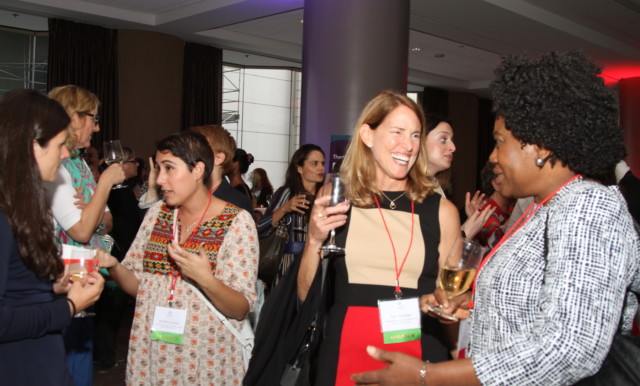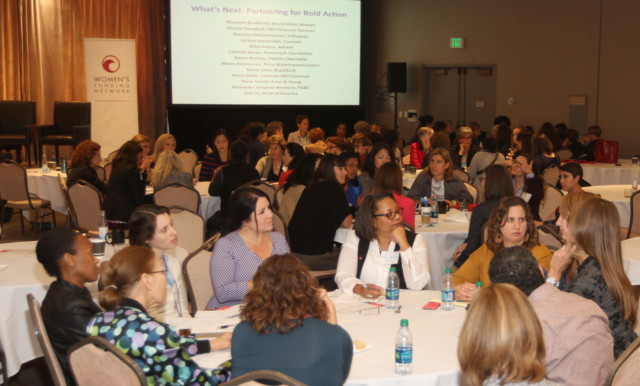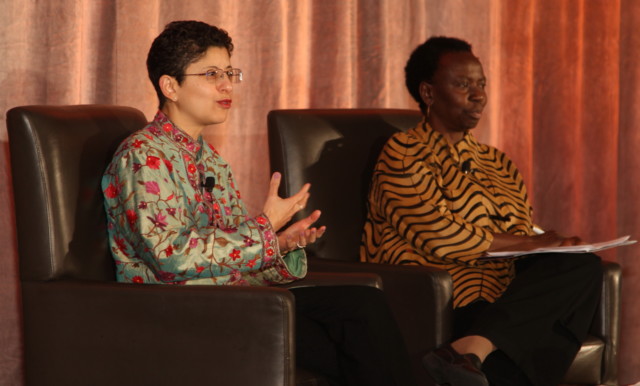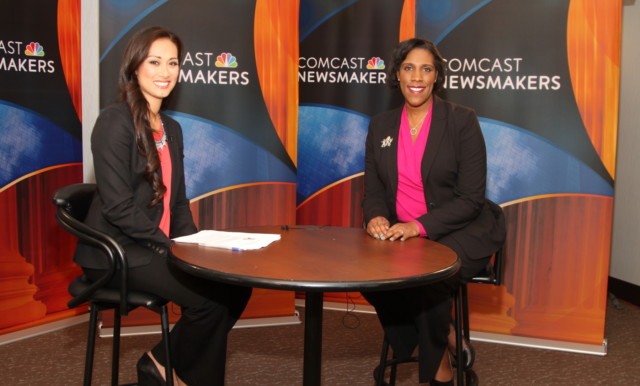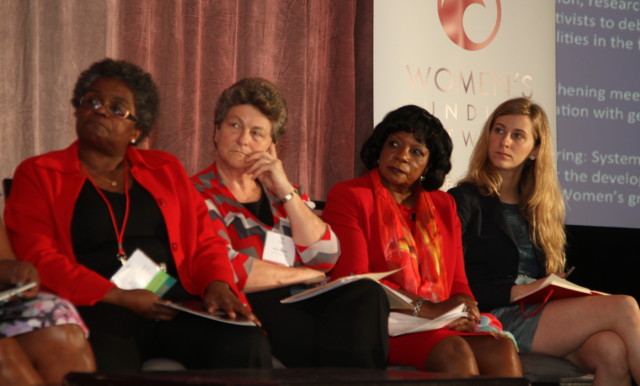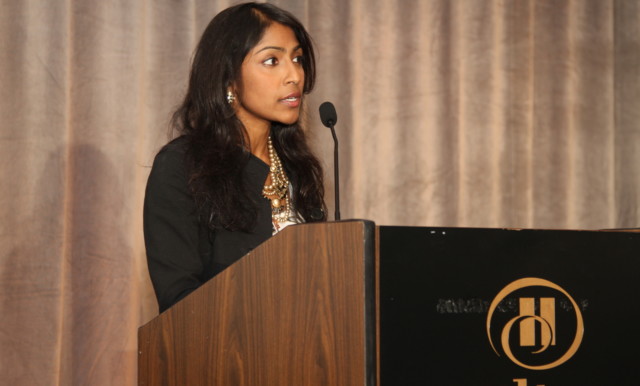STORIES OF CHANGE
New Leadership
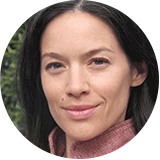 In February 2015, Women’s Funding Network welcomed a new President and Chief Executive Officer. Cynthia Nimmo combines her expertise as the former Chief Operations Officer of the Women’s Funding Network with decades of experience in business development and building networks in the for-profit sector. As a young Latina leader, Cynthia brings a fresh vision to the purpose of Women’s Funding Network, with an eye toward involving diverse perspectives.
In February 2015, Women’s Funding Network welcomed a new President and Chief Executive Officer. Cynthia Nimmo combines her expertise as the former Chief Operations Officer of the Women’s Funding Network with decades of experience in business development and building networks in the for-profit sector. As a young Latina leader, Cynthia brings a fresh vision to the purpose of Women’s Funding Network, with an eye toward involving diverse perspectives.
Paths To Equity
In October 2015, in San Francisco, over 370 gender equity funders and advocates from around the world attended the Women’s Funding Network conference, Paths to Equity: Innovative Philanthropy for Women and Girls.
In celebration of our 30th conference, we engaged new partners to share their ideas and resources, offering a diverse mix of over 30 workshops. We introduced popular new sessions, such as “Innovation in Action,” featuring updates from members on programs making an impact in their communities—from New Mexico to Omaha. Through advisory committees and host councils, we strategically created deep connections within the Bay Area corporate sector in order to engage them in gender equity conversations. The result was an increased attendance from the private sector, including a corporate roundtable discussion session, bringing private- and public-sector leaders together in dialogue.
Featured speakers included Krishanti Vignarajah, Director of Policy & International Affairs, The White House, Office of the First Lady; Barbara McAllister, Deputy Director, Intel Diversity in Technology Fund; and Maria Correia, Sector Manager, Social Development, The World Bank.
93%
Lasting Impact
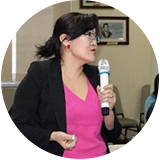
Data that Inspires
Bolor Legjeem of the Mongolian Women’s Fund left with a deeper sense of the impact that data can make: “Several U.S. women’s funds presented their research findings and several panel participants throughout the first day highlighted the significance of having and using research data,” she says. “So, upon my return when I reported on the conference we discussed and decided to have a similar event.” In March 2016, they held their inaugural data-sharing fair on women’s rights in Mongolia.

Building Awareness
Many member were moved by our screening of The Mask You Live In, so we secured a discount for all members to show it in their own communities. To date, six members have arranged screenings in their communities, including Chicago Women’s Foundation, Women’s Fund of Hawaii, Women’s Fund of Winston-Salem, Women’s Fund of Fox Valley Region, and Bulgarian Fund for Women, and many more have expressed an interest.
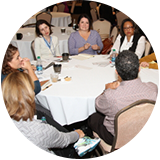
New Partnerships
The success of the corporate roundtable discussions led to the creation of the ongoing Women’s Funding Network Corporate Advisory Council. This group meets regularly to provide expertise, financial support, and strategize on extending our reach into Bay Area private-sector networks.
With Gratitude to Our Sponsors:
Comcast, W. K. Kellogg Foundation, Ernst and Young, Dallas Women’s Foundation, Global Fund for Women, The New York Women’s Foundation, The California Wellness Foundation, Women’s Foundation of Minnesota, Levi Strauss Foundation, Women’s Foundation of Mississippi, Ms Foundation, Channel Foundation, Intel, Focused Images, The Women’s Foundation of California, WBB+McCormack
Lead award
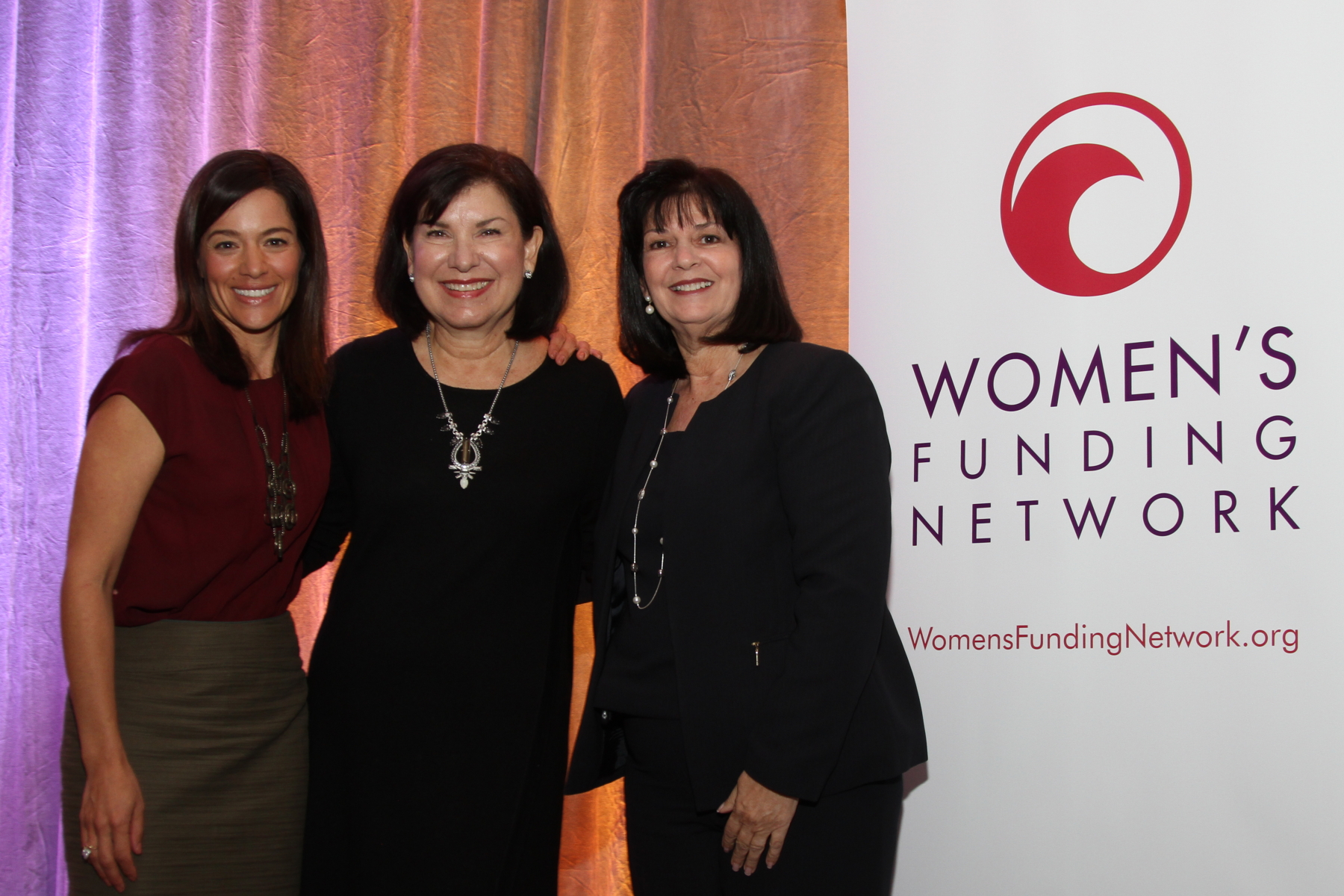
Honoring Risk-Takers: The LEAD Award
Women’s Funding Network is proud to present the Leadership in Equity and Diversity (LEAD) Award to three outstanding risk-takers in the philanthropic community who, through their determination and leadership, have increased funding for programs that promote gender equity and diversity.
2014-15 Award Recipients

Anne Firth Murray
Anne is the founding president of Global Fund for Women, and currently serves on the board of CIVICUS: World Alliance for Citizen Participation. Today, Anne teaches at Stanford University on international women’s health and human rights.
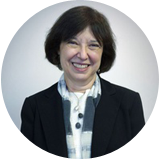
Sunny Fischer
Sunny was founding executive director of one of the first private women’s foundations in the country: the Sophia Fund. In 1984, she co-founded the Chicago Foundation for Women, which this year celebrates its 30th-year anniversary.

Brenda Tate
Brenda co-founded the Women’s Foundation of Southwest Florida and currently serves as the President. She co-founded the Florida Women’s Funding Alliance to convene Florida’s women funders and encourage their collaboration.
Partnership for Women’s Prosperity
$5.6 million New funding for Partnership for Women’s Prosperity
Late in 2015, Women’s Funding Network secured a second round of funding from the Walmart Foundation for the Partnership for Women’s Prosperity (PWP). First formed in 2011, PWP works to unleash the economic power of all women, community by community. We know that advancing the economic security of women and girls is more than a women’s issue—it’s also a catalyst for family and community change.
As part of the new grant, $5.6 million will be invested to support low-income women as they secure employment. So far, the six participating women’s foundations have invested $13 million and affected the lives of over 43,200 women in more than 100 communities in the United Sates.
Participating members
- New York Women’s Foundation
www.nywf.org - Women’s Foundation of Greater Memphis
www.wfgm.org - Washington Area Women’s Foundation
www.thewomensfoundation.org
- Women’s Foundation of Minnesota
www.wfmn.org - Women’s Foundation of Mississippi
www.womensfoundationms.org - Women’s Foundation of California
www.womensfoundca.org
IMPACT – THE NUMBERS

15,970
Received Job Training

4218
Secured a Job

5195
Completed Leadership Training

11,830
Increased Financial Knowledge & Assets

4774
Earned Credits, Credentials, or Degrees
IMPACT – THE STORIES
WE ARE GRATEFUL TO THE WALMART FOUNDATION FOR THEIR SUPPORT OF THE
PARTNERSHIP FOR WOMEN’S PROSPERITY.
Greater knowledge & impact
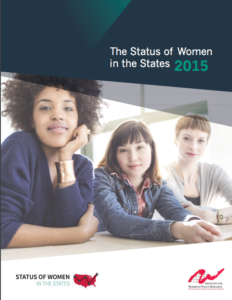 In 2015, Women’s Funding Network forged a partnership with the Institute for Women’s Policy Research to release the Status of Women in the States report series, providing members with the latest statistics on women and girls in communities in the United States and around the world. These reports provided women’s funding organizations with critical insight on trends that could influence their grantmaking priorities, along with data and media talking points on a range of topics, including economic, health, safety, and political realities for women and girls.
In 2015, Women’s Funding Network forged a partnership with the Institute for Women’s Policy Research to release the Status of Women in the States report series, providing members with the latest statistics on women and girls in communities in the United States and around the world. These reports provided women’s funding organizations with critical insight on trends that could influence their grantmaking priorities, along with data and media talking points on a range of topics, including economic, health, safety, and political realities for women and girls.
Putting the Data to Work
By arming members with latest data, we can spread knowledge and fuel movements. As the project’s national distribution partner, Women’s Funding Network helped the Status of Women in the States reach more than 75,000 people via our digital community and social networks.
More than 20 organizations in 13 states used this data to call for change in their communities, increase media attention, and ignite discussion.
Member Engagement
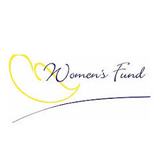
Engaging media
The Women’s Fund of Southeastern Massachusetts localized IWPR’s data for counties in their area, highlighting poverty rates in nearby cities, and held a press conference with the Mayor of New Bedford, MA. The group also sat down with local editorial boards to present data from the Status of Women in the States report, resulting in stories about the gender wage gap in the Fall River Herald and an interview with WBZ News Radio.

Engaging Policymakers & Advocates
Women and Girls Foundation of Southwest Pennsylvania hosted briefings for members of the media, policymakers, and advocates to increase investment in women and girls’ health, education, and economic security in the region helping them to become experts and leaders among their peers.
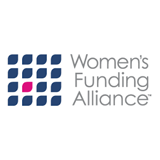
Engaging the Community
Women’s Funding Alliance traveled throughout Washington State to share the data with employers, policymakers, program providers, funders, and advocates in town hall meetings. They also hosted a webinar called Status of Women in Washington: How Far Have We Come Towards Achieving Equity?






